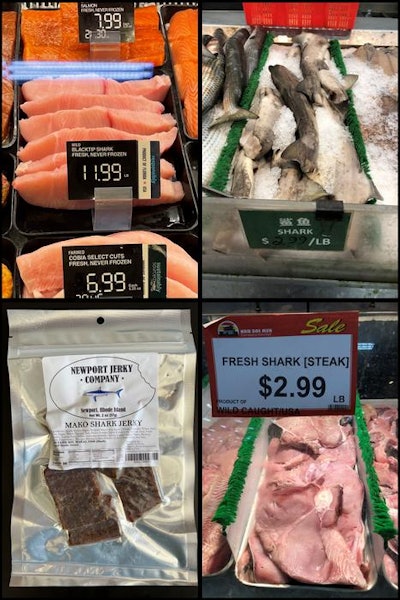Shark Meat Mislabeling: A Study Reveals Disturbing Trends in U.S. Markets
A recent study conducted by researchers at the University of North Carolina at Chapel Hill has unveiled alarming findings about shark meat sold in various U.S. outlets, including grocery stores, seafood markets, and online vendors. The research indicates that a significant portion of shark meat originates from endangered species and is often mislabeled.
Research Highlights
The team purchased and DNA barcoded 29 different shark meat products to accurately determine their species. Astonishingly, 93% of the samples were inadequately labeled, comprising meat from 11 distinct shark species. Some of the endangered species identified included the great hammerhead and the scalloped hammerhead, both classified as critically endangered by the International Union for Conservation of Nature (IUCN).

Savannah Ryburn
Consumer Concerns
“Mislabeling and ambiguous labeling remove consumers’ ability to choose what they are putting in their bodies,” stated Savannah Ryburn, Ph.D., the first author of the study and co-instructor of the seafood forensics class involved in the research. Ryburn emphasized that certain species, like the scalloped and great hammerhead, are often labeled simply as “shark,” despite containing dangerously high levels of mercury. This lack of clarity can lead consumers to unknowingly purchase products that pose health risks.
The Need for Transparency
The study revealed that out of 29 tested products, 27 were generically labeled as “shark” or “mako shark,” lacking any species-specific identification. Even the two products that claimed to specify a species contained erroneous information. These finding underscores a critical deficiency in seafood transparency and consumer safety.
“The United States should require seafood distributors to provide species-specific names for the products being sold,” urged John Bruno, Ph.D., a distinguished professor and co-instructor in the seafood forensics class.
Health Risks and Conservation
Shark meat is notorious for its high mercury content, which can seriously endanger human health, particularly in vulnerable populations such as children and pregnant individuals. The researchers argue that precise labeling is not just vital for marine conservation but also essential for protecting consumers.
“Sharks like great and scalloped hammerheads are the ocean’s equivalent of lions, and we were shocked by how cheaply the meat of these rare, long-lived apex predators was sold,” added Ryburn, highlighting that some samples were priced as low as $2.99 per pound.
Call for Action
This pivotal study adds to the limited body of research examining the accuracy of shark product labeling in the U.S. and makes a strong case for improved regulations and oversight in seafood labeling practices.
For more details, the full study is available in the journal Frontiers in Marine Science.
This structured article utilizes HTML tags suitable for WordPress integration and ensures a clear, engaging presentation of the study’s findings.



